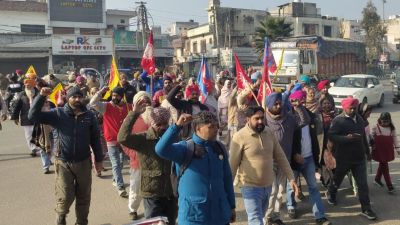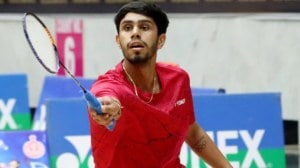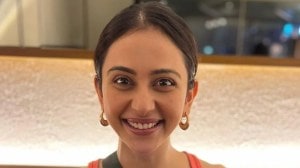Ministers need lessons in harmony
NEW DELHI, July 2: Flute wizard Pandit Hari Prasad Chaurasia literally had a ball with his 60th birthday celebrations packaged beautifully i...

NEW DELHI, July 2: Flute wizard Pandit Hari Prasad Chaurasia literally had a ball with his 60th birthday celebrations packaged beautifully in Krishnadhwani at a function held by Music Today and The Oberoi at the hotel8217;s ballroom here tonight.
Speaking to media persons, the maestro said that he was in the process of setting up a school in the gurukul tradition called Vrindavan and another at San Fransisco. In a naughty gesture, aptly so for it is the instrument of the playful God that he has promoted, Chaurasia offered to open a gurukul for politicians. 8220;Before they become ministers, they should train themselves in music so that they know what harmony is all about.8221; With the celebrations of birthdays of the maestros of Indian classical music in full vogue, Music Today took the opportunity to launch a special four-volume collection of concert recordings by Chaurasia. The selection was done by vocalist Shubha Mudgal. A fine gesture at the function were presentations for the maestro by his contemporary, Pandit Birju Maharaj, and a Mohan Veena recital by Pandit Vishwa Mohan Bhatt. It was fit that the birthday boy sit back and enjoy for once, as others made music and dance for him.
By way of a return gift there was a short film on the maestro made by his wife along with Shyam Benegal. Starting from his childhood in Allahabad, the film traced the dedication with which he rose to the front row of the country8217;s musicians. The film captured well Chaurasia8217;s complete mastery over the north Indian bamboo flute, seeking inspiration from none other but Lord Krishhna, the divine teacher. Interestingly, Chaurasia was born to a family of wrestlers.
Experimentation marked the creative journey of this man with bamboo at his lips. He chose unconventional gurus and learnt music from Ustad Allauddin8217;s daughter, Annapoorna Devi, whose instrument was the surbahahr. Not just that, he tried out fusion with western instruments and gave music to Bollywood films like Silsila and Chandni. However, he in no way experimented with his instrument. 8220;Doing so,8221; the maestro said, 8220;would be a sin. For the only two instruments given to us by nature are the conch and the bansuri. There are no factories to produce them.8221;
Krishna was the theme of the evening. Whether in the bansurivadan of Chaurasia in the film or the thumri and abhinaya by Birju Maharaj. This led Vasant Sathe to comment, 8220;We saw the two sides of Krishna today 8212; bansurivadan and raasleela.8221; Asked to comment on the new set of cassettes under the name of Krishnadhwani, Chaurasia said, 8220;I made 16 hours of concert recrodings available to Music Today. Rest of the work was theirs. What pleases me most is the name Krishnadhwani. These cassettes include two new raga: Mangaldhwani and Haripriya.8221;
- 01
- 02
- 03
- 04
- 05































